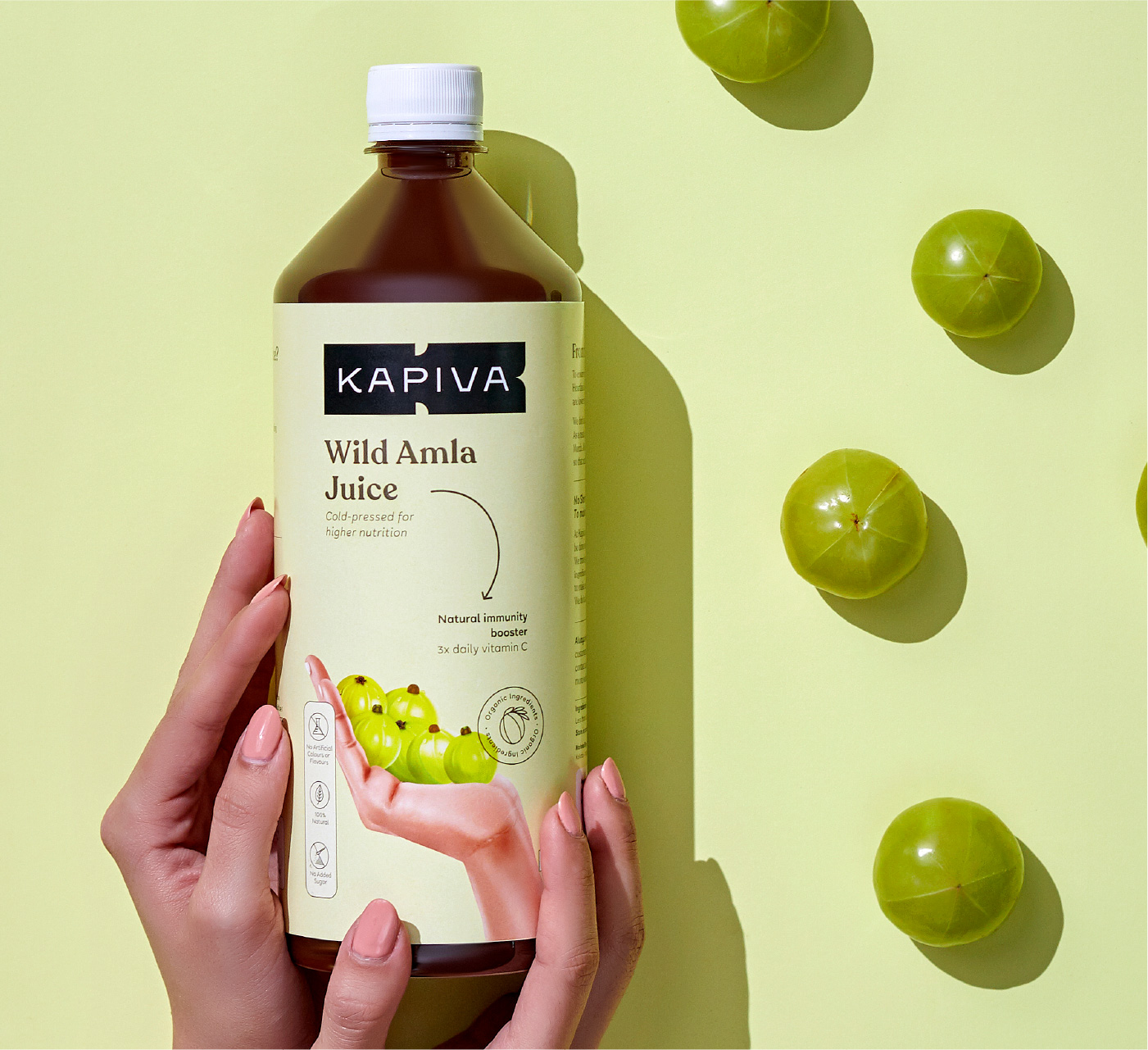We’ve heard Yoga is beneficial to our physical and mental wellbeing. There are very well…
Read MoreNo one likes an upset stomach, a gastronomical problem or irregular bowel movements. With very visible effects on your physique, skin, and even other organs, your digestive problems can cause a lot of trouble in your daily life.
You must take note of the fact that digestion is not a one-stop process. It doesn’t only happen in your stomach; it starts right when you take your first bite and continues till you break down, absorb and excrete.
Your body will give you enough signals to indicate something is amiss in your digestive tract. Some of the common symptoms that hint at digestive issues are:
If these symptoms persist, they could be indicators of underlying gastrointestinal issues like Irritable Bowel Syndrome (IBS), Inflammatory Bowel Disease (IBD), Gastroesophageal reflux disease (GERD), Celiac disease, stomach ulcers, hiatal hernia, lactose intolerance, allergies to certain foods, or even stomach cancer.
Very simply put, acid reflux is when you feel a hot/burning sensation in your chest post your meal. If you happen to experience this symptom as much as twice a week, you are suffering from Gastroesophageal Reflux Disease (GERD). Another possible outcome can be bad breath or a bad taste in your mouth. Reflux happens when your stomach acid backs up into your oesophagus, it can be caused by certain foods, alcohol and even some medicines. Acid refluxes are not to be taken lightly and can cause damage to your oesophagus in the long run and might even lead to oesophagal cancer in some cases. In cases of frequent heartburn, you should consult a doctor.
Probably the most common yet the most embarrassing symptom of a bad digestive system is a bad smelling mouth. The different times of smell that your mouth gives out are symptoms of different conditions. For instance, a fishy smell can be a sign of kidney disease, and on the other hand, a fruity smell can result from uncontrollable diabetes. Reflux can also give you bad breath. An imbalance between the good and the bad bacteria in your gut can give you bad breath. In this case, you can include probiotics in your diet.
You have heard people tell you that they are lactose intolerant. What does this term exactly mean? People suffering from lactose intolerance cannot digest milk and other dairy products. When your digestive system is devoid of certain types of enzymes required for digesting food – it can hamper your digestion. The lactose, i.e. sugar found in dairy products, might not be digestible by many. The symptoms of this are nausea, diarrhea, cramping, bloating, and gas. The symptoms are mostly visible half an hour to two/three hours post the consumption of foods you’re allergic to.
If you suffer from regular stomach pain or discomfort oftentimes in a month, it can clearly indicate Irritable Bowel Syndrome. There are several indicators of the Irritable Bowel Syndrome. The most common one is the irregularity in the consistency of your stool, from being hard on one day to loose on another. The easiest and most effective way to treat IBS is by altering your diet. Avoid foods that can cause your body harm and encourage healthy eating.
People are spending millions on laxatives and other stool relaxers worldwide. Constipation is the most commonly faced problem by the human race. Even though easily treatable constipation can lead to the development of conditions like anal fissures and fistulas. Constipation tells you that your body is having trouble getting rid of waste. Some of the side effects of constipation are feeling bloated, experiencing abdominal pain and having infrequent painful stools. High fiber foods like whole grains, green vegetables, and even some fruits are some of the best food for digestion. Milk of magnesia is a widely used treatment for constipation.
Believe it or not, you might be living with several skin issues, the underlying cause of which will be digestive issues. Skin issues like acne, eczema, and psoriasis are commonly caused by digestive issues. On the other hand, dry, flaky skin can also signify that your body is low on enzymes and can’t digest food easily. To help with this, you need to make vitamins and minerals a part of your daily diet. While Vitamin A can help prevent acne, Vitamin K can speed up the healing process of your skin. Lastly, Vitamin C and Vitamin E are rich in antioxidants and can help protect your skin and keep it healthy.
How your weight increases or decreases is a clear indication of your digestive issues. You can experience unexplained weight loss if your body cannot absorb the nutrients from your food or weight gain if you suffer from constipation or slow bowel movements.
Perhaps the most commonly asked question is how to improve digestion or tips for digestion issues. There are many ways to eliminate digestive issues, but we will talk about natural herbal juices that can help you keep your digestive system healthy. Here are some tips for digestion that can prevent and heal these recurring issues:

A fruit that is known to be rich in fiber, Amla aids in healthy bowel movement by keeping your intestinal tract clean. One of the best juice for digestion, amla also works as a natural laxative, all while flushing out harmful toxins, relieving you of constipation and irritable bowel syndrome. Amla is one of the best food for digestion as it has anti-viral properties that help improve your digestive and immune systems. When combined with ginger and honey, amla also acts as a remedy for sore throat and cold. Have 30 ml Amla Juice mixed in 50 ml water every morning on an empty stomach for best results.
Another great food for digestion is Aloe Garcinia juice. You can take the Aloe Garcinia Juice by diluting 30 ml of it in water and then flavouring it by adding salt, lemon or sugar according to your liking. An excellent detoxifier, Aloe Garcinia helps clear out the toxins from your body. As a potent juice for digestion, it also acts as a natural laxative and does wonders for your digestive system. The combination of Aloe Vera and Garcinia also makes this a preferred choice to cut down stubborn fats.

Across studies, Aloe Vera has proven to be the best food for digestion, especially for people suffering from constipation. This wonder juice for digestion is full of healthy laxatives that relax your muscles and keeps your digestive system healthy. Aloe Vera juice can also be an effective treatment for Irritable Bowel Syndrome. It is also responsible for reducing the incidence of stomach ulcers and other digestive issues. The anti-inflammatory properties of Aloe Vera, such as Vitamin C, also contribute to other digestive benefits.
When looking for digestive juices, Triphala juice should stand out as one of the best options as the food for digestion. Not only does it help you make your digestive system stronger, but it also acts as a natural laxative. This super juice for digestion also helps boost your immunity and helps in keeping liver infections at bay. Made from three of the most effective herbs – Amla, Haritaki, and Bahera- this juice helps fight constipation and improve digestion. It will also help you detoxify your body.
The most readily available juice for digestion. Consuming 30 ml of wheatgrass juice diluted in 30 ml of water twice a day can help you get rid of many digestive issues. With high levels of enzymes that aid your digestive system, wheatgrass helps you break down food and absorb nutrients. The detoxifying properties of wheatgrass also help clean your intestines and helps you experience less gas, bloating and other abdominal issues.
Here are some tips for digestion:
To get an immediate boost to your gut health, add foods rich in fiber content. Fiber, aka roughage, is found in plants and is not digested by your gut bacteria. So this roughage cleans your digestive system, increases stool volume, and helps the efficient movement of food through the GI tract. It also flushes out excess cholesterol and toxins. Fiber is key to avoiding and treating constipation, IBS, bloating, flatulence and stomach cramps. Foods like fennel, chia seeds, whole grains like oats, quinoa, and whole-wheat products are great sources of fiber.
While we add fiber-rich food for digestion to our diet, we need to understand minor differences in the type of fiber our body needs. Most of the fiber from fruits, vegetables and grains come in the form of ‘insoluble’ fiber. This is the roughage that our body cannot digest. which leads to bulking of the stool, easy movement of the stool across the GI tract, and overall cleansing. The other type of fiber known as ‘soluble’ fiber absorbs water or fluids from our gut, making our stools less watery and shaping them for easy excretion. Nuts, oat ban, seeds and legumes are sources of soluble fiber.
One of the most important tips for digestion to be optimal is to minimize your intake of foods high in fat. Fatty foods tend to slow down the digestive process, leading to constipation. Nevertheless, you do need some fat in your diet, so try to pair these fatty items with high-fiber food for digestion to make them easier to digest.
Select lean meats. You need protein as part of a healthy diet, but you also need to avoid fatty cuts of meat that tend to make digestion difficult. Choose lean cuts of meat, such as skinless poultry or pork loin. It’s not only better for your digestive tract but also more heart-healthy.
Probiotics are microorganisms or healthy bacteria naturally present in your digestive tract. Probiotics help keep your entire body healthy by counteracting the effects of a poor diet, antibiotics, and stress. Consumed daily, they may also improve nutrient absorption, break down lactose, guard against IBS, constipation, bloating, diarrhea, and generally strengthen your immune system. Good sources of probiotics-rich food for digestion include low-fat yogurt, kombucha, or kefir, daily. Shop for “live and active cultures” while shopping for probiotics.
Dieticians and other experts agree that eating breakfast, lunch, dinner, and snacks at fixed times each day allows for proper digestion of your food. When you don’t eat at consistent times, it causes your stomach to overwork, which often results in bloating and indigestion. One of the healthiest tips for digestion is to eat every 3 to 4 hours to allow your stomach to properly digest its contents.
One of the tips for digestion that will never get old is keeping yourself hydrated is essential to your digestive health. That’s because fiber draws water into your colon to create bulkier yet softer stools, which allows them to pass through more easily.
Ayurveda emphasises a healthy and efficient digestive system that critically impacts day-to-day life. A healthy digestive system effectively breaks down food, absorbs all the nutrients, helps in metabolism and energy production, and efficiently eliminates waste. Ayurveda stresses the concept of digestive fire or ‘agni’. Foods that support the digestive fire, the process of food synthesis, nutrient absorption and excretion are highly important in Ayurveda. Some tips for digestion:
1. Consume two full meals a day. Eat only if you feel hungry and do not blindly follow schedules.
2. Maintain regular eating hours based on the movement of the sun. Lighter meals when the sun rises or sets and heavier meals when it is at its peak.
3. Snacks in between meals should be light and only taken if hungry. Do not make snacks a full meal.
4. Avoid cold food and drinks. Drinking water just before meals and immediately after a meal should be avoided.
5. Consume foods that are home-cooked and warm.
6. Focus on the food and its tastes. The taste on your tongue indicates to the stomach what is expected, giving it time to secrete the right enzymes. Avoid conversation.
7. Ideally, sitting on the floor with your legs crossed is the best eating position.
8. Do not eat when you are stressed or if there is too much disturbance or commotion around. Pause, settle down mentally and then enjoy your food.
9. Ideally, eat with your hands.
10. Express gratitude for the food on your plate and to the people who got prepared it.
In conclusion, it is safe to say that we have many easily available solutions in the market for our digestive problems. There is not much a glass of juice for digestion can’t fix! Detox and replenish your system regularly for better functioning every day!
Persistent symptoms like bloating, acidity, constipation, diarrhoea, blood in your stools, heartburn, acid reflux, abdominal pain and discomfort, or feeling of nausea or vomiting are signs of digestive problems.
Ideally, visit your medical practitioner and diagnose the root of the problem. It could be a short-term issue or could be a sign of serious underlying digestive problems like IBS, IBD, Celiac disease, stomach ulcers, GERD or even stomach cancer.
Yes. Eating food for digestion that is rich in fiber, probiotics, and nutrients will keep your tummy happy. If you suffer from digestive issues like acidity, constipation, bloating, indigestion, gas, etc., then consume natural herbs (as recommended by Ayurveda) in your daily diet. Herbs like ginger, fennel, cumin seeds, coriander seeds, carrom seeds, mint leaves, lemon juice, etc., provide relief from digestive disorders. Consult your medical practitioner if the symptoms persist.
Even though most digestive issues like indigestion, gas, acidity, and bloating might subside over time, frequent instances could cause concern. These symptoms could be underlying causes of chronic digestive GERD, gastritis, IBS, IBD, and even stomach cancer. Consult your medical practitioner if the symptoms do not subside within a couple of weeks.


We are a team of food scientists and Ayurveda experts at Kapiva. Our mission is to raise awareness and educate people on ancient principles and herbs found in traditional texts. We work together to develop the most comprehensive content on Ayurveda which is grounded in peer-reviewed, scientific research.

We’ve heard Yoga is beneficial to our physical and mental wellbeing. There are very well…
Read More
Ancient wisdom dictates that one must eat breakfast like a king, lunch like a prince,…
Read More
Ayurveda is a form of alternative medicine that has been around for centuries but is…
Read More
Brahmi is a bitter-sweet medicinal herb that has been prominent across several cultures. It is…
Read More